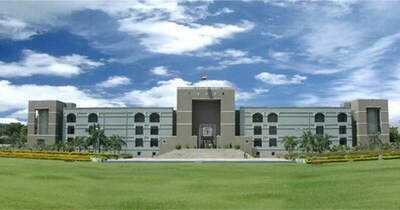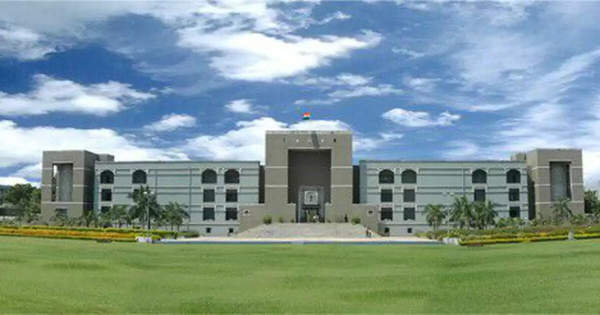
 Court Decision on Mosque Demolition
Court Decision on Mosque Demolition
On Friday, the Gujarat High Court decided not to intervene in a ruling that allows for the partial demolition of a mosque in Ahmedabad, which is believed to be around 400 years old. This action is part of a project to widen a road leading to the Sabarmati railway station.
A division bench comprising Justices AS Supehia and LS Pirzada clarified that the mosque, known as Mancha Masjid, would not be entirely demolished.
The bench supported a previous order from September 23, which stated that the Ahmedabad Municipal Corporation had adhered to the necessary procedures before initiating the setback of a section of the mosque located in Saraspur.
The mosque's custodian, known as the mutawalli, had appealed after a single judge dismissed his challenge against the municipal corporation's actions.
During the earlier hearing, the mutawalli argued that the mosque was listed in revenue records and highlighted its historical significance, noting that it had undergone several renovations over the years.
He also mentioned that the property was under the supervision of the waqf board, which manages Islamic endowments.
A waqf is an Islamic endowment dedicated to religious, educational, or charitable purposes, managed by a state-appointed waqf board.
The state government informed the single judge that the road alignment plan proposed by the municipal commissioner was essential for traffic management and to facilitate emergency vehicle access.
They argued that individual inconveniences could be overlooked in favor of the greater public good, especially when statutory powers were exercised following legal procedures.
In front of the division bench, the mutawalli's counsel contended that the Ahmedabad Municipal Corporation had dismissed all objections without adequately addressing the concerns raised after the notice for partial demolition was issued.
The mutawalli also claimed that the municipal corporation did not adhere to legal precedents regarding the road-widening initiative.
The municipal corporation's counsel countered that show cause notices had been sent to all relevant parties and that the procedures outlined in the Gujarat Provincial Municipal Corporations Act had been followed.
They emphasized that the final decision regarding setbacks rested with the municipal standing committee, which had taken into account all objections, including those from the mutawalli, before approving the plan.
On Friday, the division bench acknowledged that the road-widening project would impact numerous properties.
“We have observed that various properties, including commercial, residential, and even temples, are affected by the road expansion,” the court noted.
The court stated that the law permits the commissioner, with the standing committee's approval, to decide on the demolition of any building or part of it that lies within the designated street line.
“It is undisputed that many properties, including residential, commercial, and religious sites, are included for demolition in the road widening,” the division bench remarked. “One of these properties belongs to the appellant.”
After reviewing the earlier ruling, the division bench ultimately dismissed the appeal.